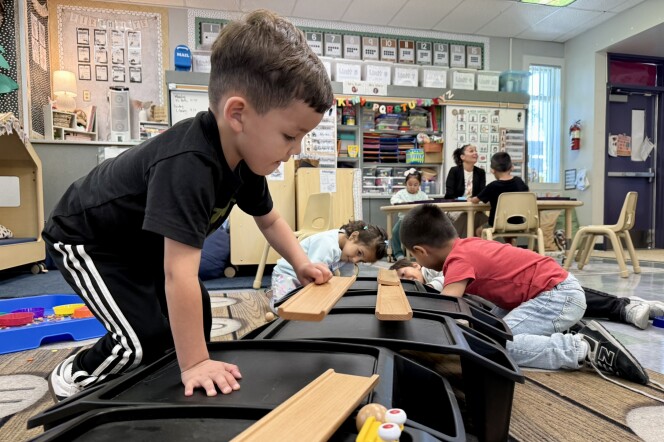With our free press under threat and federal funding for public media gone, your support matters more than ever. Help keep the LAist newsroom strong, become a monthly member or increase your support today.
This is an archival story that predates current editorial management.
This archival content was written, edited, and published prior to LAist's acquisition by its current owner, Southern California Public Radio ("SCPR"). Content, such as language choice and subject matter, in archival articles therefore may not align with SCPR's current editorial standards. To learn more about those standards and why we make this distinction, please click here.
A Subdued Jazz Age 'La Traviata' Kick Off The New LA Opera Season
The right performance of La Traviata can be a real thrill, as Verdi's opera delivers some of the most recognizable arias in the Italian repertoire right in the first scene and sustains a highly charged emotional and dramatic pitch throughout its three fairly short acts. Plus it's usually a highlight of every Los Angeles Opera season when company managing director Placido Domingo takes the stage to sing in his one annual production here. So with the great man himself appearing in Traviata this month, we expected a sparkly season debut. But the whole performance was strangely unexciting.
Of course it's always great to see Domingo (and we've had occasion previously to laud his vocal transition into baritone parts after decades spent establishing his legend as a tenor), but the fatherly role of Giorgio Germont in Traviata does not play to his traditional strength. Of course as a tenor—but also even as a baritone in Thais last year and Simon Boccanegra and other pieces prior to that— Domingo has characteristically embodied a deep wellspring of passion and power, whether amorous or political, religious or militant. What's disorienting now is that his character is the one who puts the kibosh on the young lovers' prospects for love and fulfillment. Usually the forceful romantic, he now becomes the reactionary douser of the flame. The voice is still fine, but the familiar Domingo fire is necessarily turned down to a low simmer.
Until a few years ago, the role you would have gone to see Domingo singing in Traviata was Alfredo the love-smitten son, rather than Giorgio the forbidding father. In L.A. right now the reins of this crucial tenor role have been handed to Arturo Chacon-Cruz, who sounded as if he was straining to be heard for much of the evening we attended.
In the title role of the party girl Violetta ("la traviata" literally means a "fallen woman"), Soprano Nino Machaidze from the Republic of Georgia is alternately alluring and fragile, sensible and manic in her Act One arias "Ah fors'e lui" ("Ah, maybe he is the one") and "Sempre libera" ("Always Free"). Later compelled to abandon the love of her life, her "Amami Alfredo" ("Love Me, Alfredo") is even more impassioned. Machaidze dazzled us here a few years ago in "Romeo et Juliette," and she's the real star of the show again in this Traviata.
Marta Domingo (Placido's wife) directed and designed this production, successfully re-situating the action from 19th-century Paris to the American 1920s jazz age with perfect period costumes, a vintage car driving on stage in the first scene, and evocative but gratifyingly unobtrusive sets.
While there's nothing glaringly wrong with the production, there's just not much to cheer about, either, beyond Machaidze's fairly gutsy and consistently well-sung performance and Domingo's skillful handling of a role that doesn't quite fit him. Even the orchestra under James Conlon, who usually delves right into the spirit of any opera by any composer, seemed atypically sluggish. La Traviata should be a delight; this time around, it just seems dutiful.
LA Opera's "La Traviata" has three more performances: tonight and Friday night at 7:30 and Sunday afternoon at 2. Tickets availablethrough the LA Opera website.







